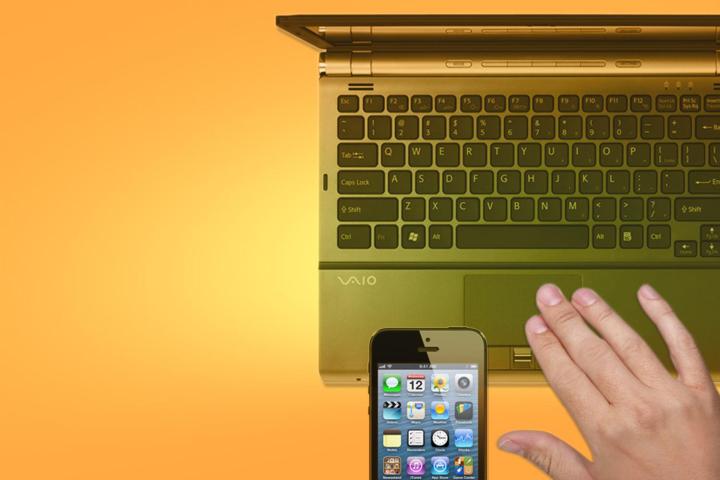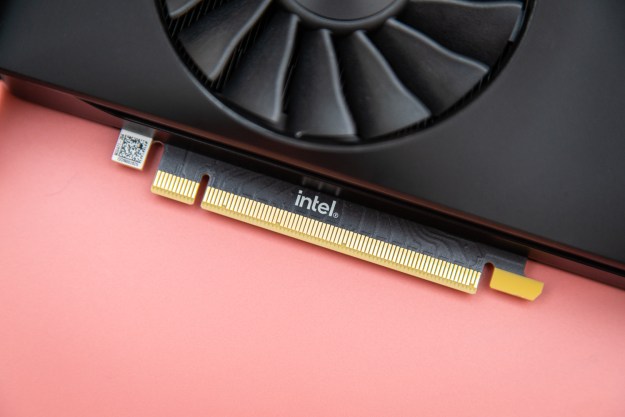
For the last several years, a variety of computing visionaries have started to speak about the possibility of smartphones replacing our PCs. At its face, this seems like an awesome advancement. Forget the twenty-pound, immobile desktop. And forget bulky, foot-wide laptops. All of the functionality of these computers could be replaced by a tiny, pocketable device. Keyboard and mouse, when needed, would be simply and quickly added through a dock, and then discarded with just as much ease.
There are, however, several problems with this fantasy. From today, an era where we’re still fascinated by the rise of mobile computing devices, the idea that a smartphone can do anything seems not just possible, but sensible. But physical reality and human needs place limits on what’s possible, and a theoretical smartphone PC bumps into both barriers.
Mobile processors aren’t fast enough
This statement is now treated as fact by many computing analysts. The tasks most people perform, which can include everything from Web browsing to photo editing and YouTube streaming, don’t see much benefit from faster and faster processors. The experience is already satisfactory. Even I can provide some evidence of this, as I have a PC in my living room which runs a Core 2 Duo E8400 processor. Though now over five years old, the desktop still feels reasonably quick and can play any modern PC game at 720p resolution (with a discrete video card, of course).
Flagship chips from AMD and Intel have been so wildly successful that they’ve pampered consumers. Both companies have made the design and production of high-end processors look easy, yet the truth is entirely the opposite. A flagship computing architecture takes years to design, and costs millions, perhaps billions, to produce.

Yet performance does matter. For evidence, look no further than netbooks, a revolution lauded by pundits that died as soon as consumers realized the tiny computers were terribly slow. For the first time in years, consumers could hobble their PC with just a few browser tabs or by opening a YouTube video. Who wants to return to that?
The processors found in smartphones are slower still, and far behind the best from AMD and Intel. An apples-to-apples performance comparison between an ARM smartphone processor and an Intel x86 processor doesn’t exist, but generally speaking, a standard-voltage Intel Core i5 laptop processor is about eight times faster, and that’s a conservative estimate. Current mobile hardware doesn’t stand a chance, and more importantly, it’s nowhere near as quick enough to provide a satisfactory PC experience.
Battery life restricts processor potential

The answer is power consumption. Samsung’s ARM-powered Chromebook proved itself more capable than the older Intel Atom in benchmarks, but it uses 4 watts at idle and up to 11 watts at load. That’s not much by laptop standards, but for a smartphone, it’s staggering.
Smartphones measure idle consumption by milliwatts and never draw more than three watts at load. Such low power draw is necessary to provide reasonable battery life, and even so, high-end phones suck down their battery with surprising speed. During our recent review of the Galaxy S4, for example, we managed no better than eleven hours on a charge.

Ironically, it’s the trait that makes smartphones look perfect as a mobile PC replacement – portability – which makes them unsuitable for the same role. There’s no way for a device to offer all-day endurance, a pocketable footprint, and PC-grade performance without a massive leap forward in battery technology. And no such leap is on the horizon.
People don’t want to take their desktop everywhere
The technology to make smartphones work as a true PC replacement just isn’t in place. But even if it was, I still don’t think the idea would gain traction. That’s because a pocketable PC isn’t a must-have for most people.
Much computing analysis is based on an assumption that people care about mobility, yet there’s no evidence this is true. Laptops have outsold desktops for years, yet the majority of consumers buy large and inexpensive 15.6-inch systems rather than portable 13-inch alternatives. Netbooks rose to fame on the promise of all-day computing at an affordable price, yet most never left home. Even tablets rarely leave the living room once they’ve taken up residence.

Smartphones are, of course, the ultimate display of the consumer’s care for mobility. But while they might technically be small computers, people don’t buy them because they’re similar to their PC. Instead, widespread adoption of touchscreen phones has occurred precisely because they don’t operate like a computer. They’re simple, they’re (relatively) easy to use while walking, and they just work. Giving a smartphone the performance and capabilities of a PC enhances none of these traits and may even degrade them.
Most people are, and will remain, uninterested in computing, and just want their device to be intuitive and useful.
Let’s return to laptops, as their rise is an excellent example of what’s valuable to most people. We know that laptops rose to out-sell desktops, yet most people don’t use them on the go. That seems a contradiction, because a desktop is a better value for money. So why do people enjoy laptops? For many, it’s the simplicity; there’s no need to worry about a separate monitor, keyboard, mouse, and speakers. If you view your computer as a tool that should just work, as do most consumers, then the laptop makes more sense than the desktop.
A smartphone PC would be a step back from this; it would involve various docks and confusing connections. Does this keyboard fit with that smartphone? Why doesn’t this display work? Should you use a mouse, a touchpad, or a touchscreen? The wonderful simplicity of a smartphone would be turned on its head.
Conclusion
Smartphone PCs are an idea that makes a lot of sense to people who care deeply about technology, but the most enthusiastic don’t always have the clearest vision. If you’re always on the go, fly frequently, and work on a computer from remote locations more often than not, then a smartphone PC looks attractive.
But most people aren’t like that, and never will be. The rise of computing has naturally led to a rise in interest about it, but this doesn’t mean the world will eventually be filled by PC geeks. Most people are, and will remain, uninterested in computing, and just want their device to be intuitive and useful. From that perspective, a smartphone PC just doesn’t make sense.
(Image Credit: Fred/Flickr)
Editors' Recommendations
- Does RAM speed matter for PC performance?
- I tested Intel’s XeSS against AMD FSR — and the results speak for themselves
- As a lifelong PC gamer, these are the apps I couldn’t live without
- 4 CPUs you should buy instead of the AMD Ryzen 7 5800X3D
- I keep my PC on the floor, and you can’t convince me otherwise




